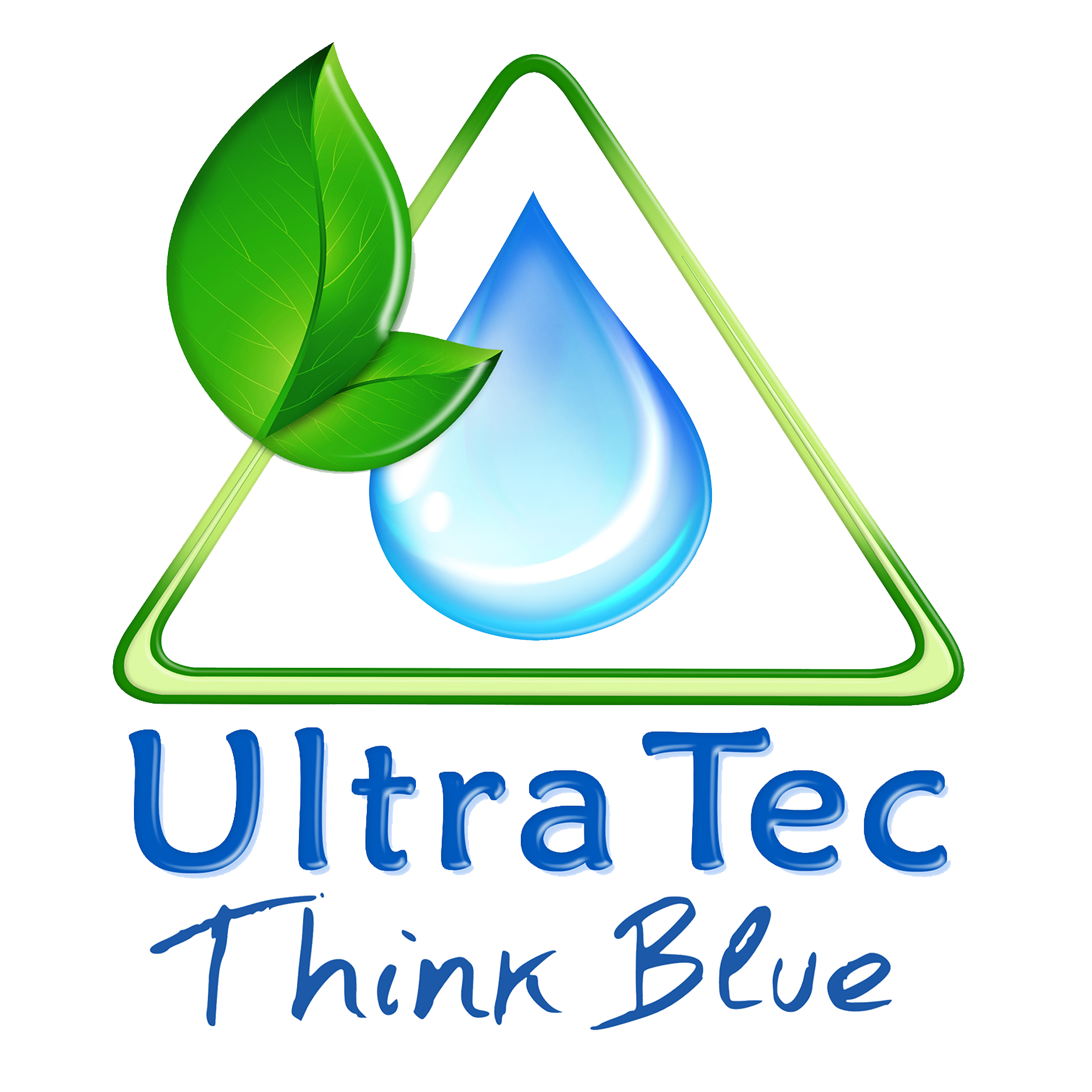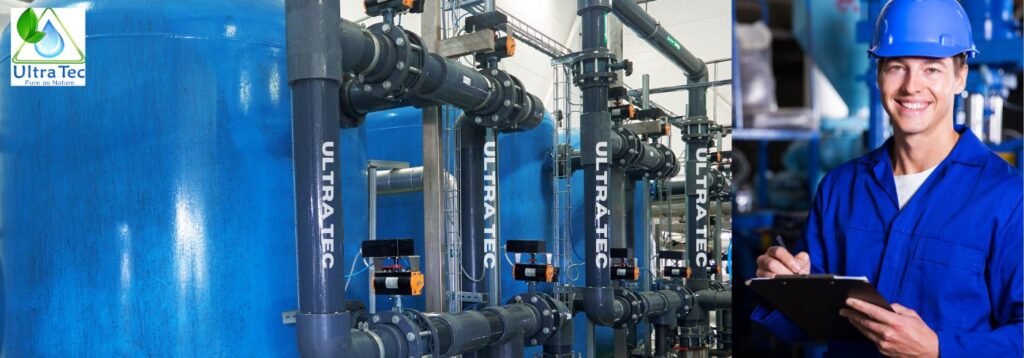Water is vital in various industrial processes, but its quality can often pose challenges. Industrial water softener systems RO Plant water treatment company UAE provide an effective solution to tackle the issue of hard water, which includes high grades of minerals such as calcium and magnesium. This article will explore the working principle of industrial water softener systems, their benefits, types, factors to consider when choosing one, installation and maintenance guidelines, case studies, challenges, and limitations. Let’s dive in and discover how industrial water softener systems can revolutionize water quality in industrial settings.
How Does an Industrial Water Softener System Work?
Industrial water softener systems are designed to remove hardness-causing minerals from water, primarily through ion exchange. The system has several key components, including a resin tank, control valve, brine tank, and distributor tube.
The softening process begins as hard water enters the resin tank, containing tiny resin beads with a negative charge. These beads attract and exchange the positively charged calcium and magnesium ions for sodium ions, softening the water. Once the resin becomes saturated with calcium and magnesium ions, the system enters the regeneration phase, where a salt solution (brine) is used to flush out the accumulated minerals and recharge the resin bed.
Benefits of Using an Industrial Water Softener System
Implementing an industrial water softener system can yield numerous benefits for businesses in manufacturing, hospitality, healthcare, and more. Explane some of the key benefits:
- Reduction of Scale and Mineral Buildup
Hard water often leads to the buildup of scale and mineral deposits on equipment and pipes, causing inefficiency, corrosion, and costly repairs. By removing hardness-causing minerals, industrial water softener systems help minimize scale formation, extending the lifespan of machinery and reducing maintenance expenses. - Extended Lifespan of Equipment and Machinery
Industrial equipment, including boilers, cooling towers, and heat exchangers, is prone to damage caused by hard water. Continuous mineral exposure can result in clogged pipes, reduced heat transfer efficiency, and equipment failure. Businesses can protect their valuable assets by utilizing a water softener system, reducing downtime and replacement costs. - Improved Efficiency and Energy Savings
Hard water requires more energy to heat since the minerals act as insulators. By softening the water, industrial water softener systems enhance energy efficiency, reducing operational costs and reducing carbon footprint. Additionally, improved heat transfer efficiency results in faster production cycles and increased productivity. - Enhanced Product Quality
Soft water is crucial in industries where water quality directly impacts the final product, such as food and beverage manufacturing or pharmaceuticals. Industrial water softener systems eliminate the risk of mineral contamination, ensuring product consistency, taste, and purity.
Types of Industrial Water Softener Systems
When selecting an industrial water softener system, businesses can choose from several types depending on their needs and requirements. The most common types include:
-
Salt-based Water Softeners
Salt-based water softeners, or ion exchange water softeners, utilize resin beads to remove minerals from water. These systems require salt or potassium chloride for regeneration, which involves periodically flushing the resin bed with a salt solution. Salt-based water softeners are highly effective but may not be suitable for applications where sodium levels must be minimized.
-
Salt-free Water Softeners
Salt-free water softeners, descalers, or conditioners do not remove minerals from water but change their chemical structure to prevent scale formation. These systems use technologies like template-assisted crystallization or electromagnetic waves to alter the properties of minerals, creating them less likely to attach to surfaces. Salt-free water softeners are maintenance-free, environmentally friendly, and ideal for those concerned about sodium intake.
-
Dual-tank Water Softeners
Dual-tank water softeners consist of two resin tanks and control valves, allowing continuous water softening even during regeneration. While one tank is in use, the different experiences regeneration, ensuring a constant supply of softened water. This kind of design is generally utilized in industries with increased water demand and cannot afford any interruptions in the softening process.
Elements to Contemplate When Selecting an Industrial Water Softener System
Selecting the right industrial water softener system by UltraTec requires careful consideration of various factors. Businesses should evaluate the following aspects to ensure optimal performance and cost-effectiveness:
-
Water Hardness Levels
Determining the hardness level of the incoming water is essential in choosing the appropriate capacity and resin type for the system. Conducting a water hardness test will provide valuable information to size the system correctly and avoid issues such as resin exhaustion or inadequate softening.
-
Flow Rate and Capacity Requirements
Understanding the water flow rate and daily consumption is crucial to accurately size the industrial water softener system. Oversized or undersized systems can result in inefficiencies, increased water, and salt consumption, or insufficient softening capacity. It’s essential to consider peak demand periods and future growth projections when selecting the system’s capacity.
-
Maintenance and Regeneration Process
Different water softener systems require varying degrees of maintenance and regeneration. Salt-based systems need regular salt refills and periodic resin bed cleaning. Salt-free systems typically have lower maintenance requirements but may require occasional checks or cartridge replacements. Assessing the available resources, time, and expertise for system maintenance is vital in making an informed decision.
-
Cost Considerations
The cost of an industrial water softener system includes the initial investment and ongoing expenses such as salt or potassium chloride, water, and electricity consumption. It’s crucial to evaluate the system’s total cost of ownership, including installation, maintenance, and operational costs, to determine its long-term financial viability.
Installation and Maintenance of Industrial Water Softener Systems
Accurate facility and regular keeping are important to ensure the optimal implementation and longevity of an industrial water softener system. Consider the following guidelines:
- Consult with a professional: Engage the services of a qualified technician to assess your specific requirements, recommend the most suitable system, and oversee the installation process.
- Correct positioning: Install the system in a well-ventilated place, out from immediate daylight, excessive temperatures, and chemicals. Provide sufficient space for coming supervision and renewal processes.
- Plumbing connections: Follow the manufacturer’s instructions for connecting the softener system to the water supply and discharge pipes. Use appropriate fittings and ensure proper sealing to prevent leaks.
- Electrical connections: If the system requires electrical power, consult an electrician to ensure proper wiring and compliance with local regulations.
- Regeneration schedule: Set a suitable regeneration schedule based on water consumption and hardness levels. Follow the manufacturer’s recommendations for salt dosage and regeneration frequency.
- Routine maintenance: Regularly inspect the system for leaks, check the brine tank salt level, and clean the brine tank and control valves if necessary. Replace worn-out components as per the manufacturer’s guidelines.
Remember, maintenance requirements may vary depending on the type and model of the industrial water softener system. Refer to the system’s user manual or consult the manufacturer for specific maintenance instructions.
Successful Implementation of Industrial Water Softener Systems
Real-life examples of industries benefiting from industrial water softener systems demonstrate their effectiveness and positive impact. Here are two case studies:
-
Manufacturing Industry
A large-scale manufacturing plant experienced frequent breakdowns and decreased productivity due to mineral buildup in their machinery. After installing an industrial water softener system, the plant observed a significant reduction in scale formation and equipment failures. The extended lifespan of their machinery resulted in substantial cost savings and improved overall efficiency.
-
Hospitality Industry
A luxury hotel faced guest complaints about hard water stains on bathroom fixtures and dull-looking linens. By implementing an industrial water softener system, the hotel eliminated the issues related to hard water, resulting in cleaner and shinier surfaces. The improved water quality enhanced the guest experience, leading to positive reviews and increased customer satisfaction.
These case studies highlight how industrial water softener systems can address specific industry challenges, leading to tangible benefits and positive outcomes.
Challenges and Limitations of Industrial Water Softener Systems
While industrial water softener systems offer numerous advantages, it’s important to be conscious of their boundaries and potential challenges. Consider the following:
Impact on Water Quality and Taste
The ion exchange process in salt-based water softeners returns calcium and magnesium ions with sodium ions. This can improve sodium content in the softened water, which may impact its taste. Alternative solutions like salt-free water softeners or point-of-use filtration systems may be more suitable for applications where water taste is critical.
Environmental Considerations
Salt-based water softeners regenerate using salt or potassium chloride, which introduces high levels of sodium or potassium into the wastewater. While this is typically diluted in larger wastewater treatment systems, it can impact local ecosystems and water sources in areas with limited wastewater treatment capabilities. Businesses should consider eco-friendly alternatives or explore options for wastewater management.
Alternative Solutions for Specialized Applications
Traditional water softening methods may not be suitable for certain industries, such as those requiring ultra-pure water or specific mineral compositions. Specialized applications might require different water treatment company UAE processes, such as reverse osmosis or deionisation, to achieve the desired water quality. It’s crucial to consult with water treatment experts to determine the most appropriate solution for specialized requirements.

